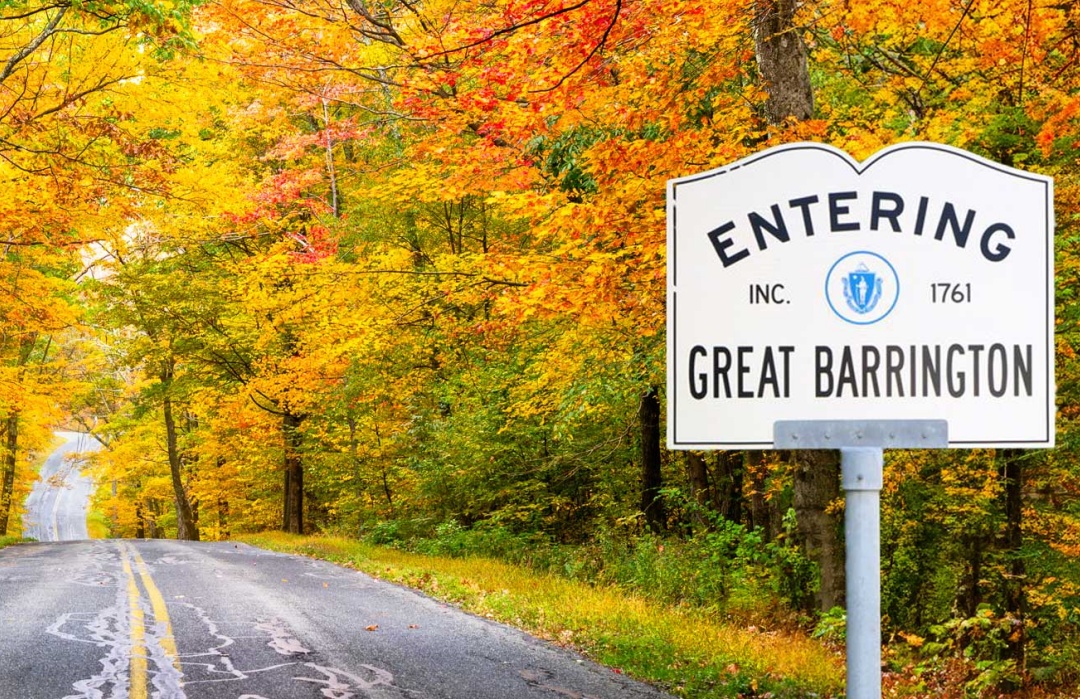How will moving to the Berkshires, MA, impact your financial plan?

The Berkshires are home to unparalleled natural beauty. This area offers a playground for outdoor enthusiasts of all stripes. Whether you’re an avid hiker, a passionate skier, or simply someone who revels in the simplicity of nature–this region has something to delight every adventurer’s soul.
If you’ve been mulling over the idea of trading the hustle and bustle of city life for the serene splendor of the Berkshires, there’s never been a better time to take the plunge. Let’s look at how a move to the Berkshires could impact you and your financial plan.
Table of Contents
Moving From New York To Massachusetts: Pros and Cons
While the Berkshires promise a lifestyle brimming with natural beauty and community charm, you do need to navigate the practical side of what comes with moving from out-of-state. Let’s look at some pros and cons of moving from New York to Massachusetts.
Pros:
- Lower Cost of Living: While Massachusetts, including the Berkshires, can be more expensive than some parts of the country, it often offers a lower cost of living compared to New York City and its surrounding areas. Housing is one of the places where you’ll be able to save some money. Homes in the Berkshires will cost about 40% less than in New York. If you’re a homeowner, you can use this savings to your advantage. You could choose to upgrade your home when you move or take the leftover equity and invest it somewhere else.
- Quality of Life: Massachusetts boasts a high quality of life with excellent healthcare, education, and recreational opportunities. The Berkshires has access to quality healthcare locally and is also close enough to big cities like Boston and New York, if you need more specialized care. The Berkshires, in particular, offer a peaceful, nature-filled environment ideal for those seeking a slower pace of life.
- Scenic Beauty: The Berkshires are renowned for their natural beauty, offering stunning landscapes, picturesque mountains, and charming small towns. In the summer, there are numerous beaches to enjoy while you live that “lake life”. There are few other places that offer the same combination of nature that the Berkshires offer. Many of our clients that have moved from big cities find themselves spending so much more time outdoors here. Because nature is so readily accessible in the Berkshires, you don’t have to go far to enjoy it.
- Cultural Richness: Massachusetts, and especially the Berkshires, are cultural hubs with thriving art scenes, music festivals, theater productions, and more. You’ll find plenty of opportunities to immerse yourself in the arts and cultural offerings, despite being outside of the big city. For example, Barrington Stage Company in Pittsfield has produced plays that went on to Broadway runs and national tours!
Cons:
- Distance from Major Cities: While the Berkshires offer a tranquil retreat, the region is also relatively isolated from major urban centers. If you’re accustomed to the hustle and bustle of city life, you may find the remoteness to be a downside.
- Limited Job Opportunities: Depending on your profession, job opportunities may be more limited compared to larger metropolitan areas like New York City. Remote work options are becoming more prevalent, but it’s worth considering your career prospects before making the move. If you’re choosing the Berkshires for a retirement location, this will be a non-issue.
Cost of Living Comparison:
In general, the cost of living in Massachusetts is lower than in New York City but may be higher than in more rural parts of New York state. Housing costs, in particular, tend to be more affordable in the Berkshires compared to New York City and its suburbs.
Cost of Moving:
The cost of moving from New York to the Berkshires will depend on several factors, including the distance, the amount of belongings you’re moving, and whether you hire professional movers or opt for a DIY approach. On average, you can expect to pay anywhere from a few hundred to a few thousand dollars for a local move within the same region.
Grab quotes from several moving companies to compare prices and ensure you’re getting the best deal. Don’t forget about additional moving expenses such as packing materials, insurance, and storage fees if needed.
Move From Connecticut to Massachusetts: Pros and Cons
While swapping Connecticut for the Berkshires might not feel as monumental as leaving the Big Apple–there are still plenty of things to consider when planning an out-of-state move. Realistically, there are many things that influence a move. Let’s look at some pros and cons of moving from Connecticut to Massachusetts.
Pros:
- Lower Cost of Living: While Connecticut is generally more affordable than nearby New York City, the Berkshires may offer a lower cost of living, especially if you’re coming from a big city like Hartford. In terms of housing and property taxes, housing is around 25% less expensive in the Berkshires
- Outdoor Recreation: Similar to Connecticut, Massachusetts boasts picturesque landscapes and charming small towns. The Berkshires, in particular, offer stunning views, outdoor recreational opportunities, and a tranquil environment ideal for those seeking a peaceful retreat from that big city lifestyle. For example, many towns in the Berkshires are located right on the Appalachian Trail.
- History and Culture: Massachusetts is rich in history and culture, with renowned museums, art galleries, and performing arts venues scattered throughout the state. The Berkshires, in particular, are known for their vibrant arts scene, including music festivals, theater productions, and art exhibitions. Winterlights at Naumkeag (a historic house museum) is one festival I look forward to every year.
Cons:
- Job Market: While Massachusetts offers a diverse economy with opportunities in various industries, the job market in the Berkshires may be more limited compared to larger cities like Hartford or Stamford, Connecticut. If you’re not going to be working remotely or retiring when you move, it’s worth researching job prospects in your field before taking the leap.
- Weather: Like Connecticut, Massachusetts experiences all four seasons, including cold winters and hot summers. However, the Berkshires may have more unfavorable weather conditions, especially in winter–which could be a frustration if you’re not accustomed to snow or colder temperatures.
Cost of Living Comparison
The cost of living in Connecticut is generally higher than in the Berkshires, particularly in terms of housing costs. The Berkshires may provide more affordable housing options, especially for those looking to purchase a home. Other expenses such as groceries, utilities, and transportation may also be slightly lower but won’t be a huge difference.
Cost of Moving
The cost of moving from Connecticut to the Berkshires can vary wildly, depending on how far you’re moving from, how much stuff you are moving and if you decide to hire professionals or not. Historically, the further the distance and the more stuff you have to move, the more expensive it will be.
Whatever route you choose to go, get quotes from multiple moving companies to make sure you’re getting a good deal. Make sure to add in additional costs like packing materials or storage fees.
Financial Planning Considerations When Moving to the Berkshires from Out of State
Moving to the Berkshires from out of state can be an exciting adventure, but it’s essential to consider the financial implications to ensure a smooth transition.
Taxes are always a big concern when you’re moving, especially when it comes to increases. Here are some key financial planning considerations to keep in mind:
1. Income Tax: Massachusetts has a state income tax of 5%, which may differ from the tax rates in your previous state. Many surrounding states typically operate on a sliding scale, so if you’re within a higher income bracket, you may find significant income tax savings when moving to the Berkshires. For example, New York residents pay anywhere from 4% to nearly 11% in income taxes, while Connecticut residents pay between 3 and 6.99%. Residents of New York City pay an additional income tax of more than 3%.
2. Estate Taxes: Estate taxes (the taxes owed by your estate upon your death) are one of the biggest financial concerns I see with clients moving from New York or Connecticut to Massachusetts. New York state has an estate tax exemption of $5 million, and in Connecticut, it’s close to $13 million. But here in Massachusetts, only the first $2 million of your estate’s value is exempted from estate tax upon your passing.
Your heirs may not have lost any of their inheritance to estate taxes in New York or Connecticut, but moving to Massachusetts can change the picture significantly. Estate planning with an educated financial advisor plays a big role in reducing or eliminating the amount of your estate’s value owed to the state.
3. Property Taxes: If you move from a big city or metropolis, you’ll probably be surprised to find how much lower property taxes are in the Berkshires. Even for homes of comparable size and style, the cost for property taxes will likely be lower than in the big cities. And if you’re downsizing, you can expect your property tax bill to be even smaller! Property tax rates can vary by town, so it’s best to research the property tax rates in your desired area to understand how they may affect your housing budget.
4. Insurance: Massachusetts and the surrounding states typically have similar costs when it comes to insurance. Your financial planner or advisor should evaluate your new situation to identify any areas where you may be over- or under-insured, saving you money on insurance premiums and helping to reduce risk.
5. 529 Plans: If you have children and have been contributing to a 529 college savings plan in your previous state, you can continue to contribute to the plan after moving to Massachusetts. Contributions to 529 plans are not restricted to residents of a particular state, so you can maintain your existing plan or open a new one in Massachusetts. Massachusetts does offer state income tax deductions for contributions to its own 529 plan, the U.Fund College Investing Plan. If you open a new 529 plan in Massachusetts, you may be eligible for state tax benefits on your contributions.
If you’re saving for college expenses, your financial advisor or planner can help you make your savings go farther. My colleagues in the financial planning department here at BMM work with clients to both save for college and reduce college expenses.
6. Estate Planning: A move is a great time to re-evaluate your plans with your financial advisor, especially if it’s been a few years since you’ve set up your estate plan. Concerning documents such as wills, trusts, and powers of attorney, now is the time to review them to ensure they comply with Massachusetts’ laws and reflect your current priorities. Check for any places you may need to make updates like choosing guardians for minor children, beneficiary designations, and any changes in your assets or family situation. Things may have changed due to the move or other life factors.
7. Long- and Short-Term Goals: Moving to a new place can change your values or priorities–or you may be moving because you are looking for a change. Whether you’ve moved for retirement or are just looking for a change of pace, you may find some of your goals have changed. You may start traveling more to see family, suddenly have an influx of cash from a home sale, spend more on new hobbies and passions, update or renovate your home, or dedicate more to charitable causes. As you settle into life in the Berkshires, it’s a good idea to revisit your financial plans to make sure you’re still aligned and on-track with your goals.
Moving to the Berkshires offers the promise of a slowed-down lifestyle surrounded by breathtaking landscapes. Whether you’re seeking more time in nature or simply a quiet place to call home, the Berkshires have something to offer everyone.
Moving to The Berkshires FAQs
1. What is the main town in the Berkshires?
According to our friends at 1Berkshire, “The Berkshires are made up of 32 cities and towns ranging from 43,000 people to 136 people–each with its own unique character, flavor, industries, and opportunities – and each city or town benefits from its neighboring communities in a variety of ways.”
Pittsfield, where I grew up and still reside today, is the largest town by population and the county seat.
2. What is the Largest town in the Berkshires?
The largest community by population in the Berkshires is the City of Pittsfield (~43,600). Followed by North Adams, Adams, Williamstown and Great Barrington.
Berkshire Money Management has offices conveniently located in Dalton (just outside Pittsfield) and in Great Barrington.
3. Do you need a car in The Berkshires?
Yes, the Berkshires include over 900 square miles of space. Meaning there is often a lot of space between amenities. It is possible to live, work, and play in one of our many downtown areas, but having a car makes the whole region accessible.
However, as an avid cyclist, one of my favorite things about the Berkshires is the ability to hop on my bike (or e-bike) and spend the weekend enjoying the countryside. We just don’t have the congestion of the big cities, which makes biking around or exploring new places easy and enjoyable.
You can ride the Berkshire Flyer train between NYC and Pittsfield during the summer season, which is great if you’re splitting your time between the two – but other public transportation options are limited out here.
4. What is the quality of life in the Berkshires?
When you move from the big city to the Berkshires, you may find yourself spending a lot more time outdoors. The Berkshires aren’t just a haven for nature lovers and cyclists like me though; there’s plenty of cultural richness and artistic flair to go around. On a weekend you might find yourself strolling through charming art galleries, browsing locally-made wares at farmers’ markets, or enjoying performances at venues like Tanglewood, Jacob’s Pillow, and the Williamstown Theatre Festival.
Of course, no discussion of the Berkshires would be complete without a nod to the delicious local eateries in the region. Here are just a few of my favorite local spots:
- Mazzeo’s Ristorante in Pittsfield
- La Fogata in Pittsfield
- Burmese Bowl in Lee
- Hot Plate Brewing in Pittsfield
- Cafe Adam in Great Barrington
5. Is Great Barrington a good place to live?
Great Barrington is a great place to live and has so much to offer for residents! For those that love a walkable city, it sports a compact downtown similar to Adams, Pittsfield, and Stockbridge.
Many of the people I know who have left NYC for the Berkshires have gravitated toward Great Barrington. With great food and retail options, rich history, vital community organizations, and year-round cultural activities, Great Barrington is definitely a great place to live. I spend half my week in our GB office, which gives me the opportunity to enjoy all it has to offer!
6. How do I financially prepare to move?
Moving, especially an out-of-state move, can seem daunting. However, with some preparation, you can break down the process into manageable tasks. Besides housing expenses like down payments and closing costs, you’re going to have large one-time expenses, like a moving truck and movers–which can be anticipated and budgeted for in advance. You also need to factor in recurring fees like storage facility costs, if needed. And of course, you’ll want to save and plan for anticipated expenses in your new home, such as large repairs or renovations and decorating.
We created a financial checklist to help our new neighbors address financial planning concerns before and after your move. Click here to download your free copy!
Are you new in town? Let’s put together a financial plan to ensure a smooth transition. Our local, licensed financial advisors and planners look forward to helping you create a plan for your future in your new home. Schedule a free 15-minute “get to know you” call today.
Peter is a Certified Senior Advisor and Executive Director at Berkshire Money Management. He is skilled in retirement planning and specializes in helping older adults navigate the changing needs of their later years. He’s also the one to ask about places to dine out, hike, or cycle in Berkshire county.









